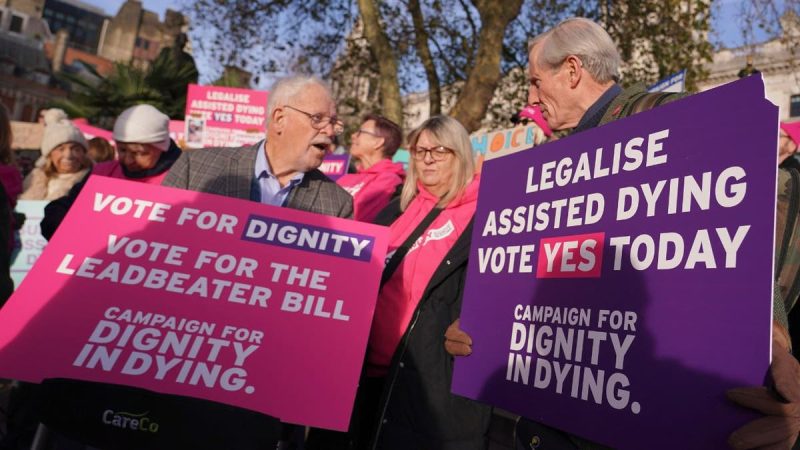The recent decision of UK lawmakers to pass a bill legalizing assisted dying has sparked intense debate and discussion within the country and beyond. The move has significant implications for end-of-life care and the ethical considerations surrounding the right to die with dignity. While proponents of the bill argue that it provides individuals with autonomy over their own bodies and choices, opponents raise concerns about the potential for abuse and the impact on vulnerable populations.
One of the key arguments in favor of the bill is the emphasis on individual autonomy and the right to make decisions about one’s own body and life. Supporters argue that individuals facing terminal illness or unbearable suffering should have the option to end their lives with the assistance of medical professionals, allowing them to die on their own terms and in a dignified manner. Legalizing assisted dying provides a sense of control and choice to individuals who may otherwise feel powerless in the face of debilitating illness.
Additionally, proponents of the bill highlight the importance of compassion and empathy in end-of-life care. They argue that allowing assisted dying can alleviate unnecessary suffering and provide a more humane and compassionate approach to supporting those at the end of their lives. By legalizing assisted dying, the focus can shift towards ensuring that individuals receive the care and support they need to make informed decisions about their own end-of-life treatment.
However, the decision to legalize assisted dying is not without its controversies and concerns. Opponents of the bill raise significant ethical and practical issues, including the potential for abuse, coercion, and the impact on vulnerable populations. Critics argue that the legalization of assisted dying may undermine the value of human life and place vulnerable individuals, such as the elderly or disabled, at risk of being pressured into ending their lives prematurely.
Moreover, opponents stress the need for robust safeguards and regulations to prevent abuse and protect the most vulnerable members of society. They emphasize the importance of ensuring that individuals seeking assisted dying are fully informed, mentally competent, and not unduly influenced by external pressures. The need for stringent criteria and oversight is crucial to prevent the misuse of assisted dying and to uphold the ethical standards of healthcare and end-of-life decision-making.
In conclusion, the legalization of assisted dying in the UK represents a significant step towards recognizing individual autonomy and dignity in end-of-life care. While the bill offers the potential for individuals to have greater control over their own deaths, it also raises important questions about ethics, safeguards, and the protection of vulnerable populations. Moving forward, careful consideration and responsible implementation of assisted dying laws will be essential to balance the need for individual choice with the imperative to safeguard ethical principles and protect those most at risk.
